Last week ministers took up their positions in the new post-election French government, known as the 'Philippe 2' government after the prime minister Édouard Philippe who remains in place. The changeover from the 'old' government formed immediately after President Emmanuel Macron's election in May was carried out as quickly as possible to dispel the air of hesitation - even amateurism - that had been lingering for a few days.
For no fewer than four high-profile ministers had been forced to stand down just before the new government was formed. These were Macron's loyal ally Richard Ferrand, who was moved from his post as territorial cohesion minister after a preliminary investigation launched into alleged 'favouritism', and three ministers from the centrist MoDem party which has been rocked by claims that it used European Parliamentary assistants for party work. So out went defence minister Sylvie Goulard, the European affairs minister Marielle de Sarnez and even justice minister François Bayrou, the president of MoDem. Bayrou claimed there was a plot by “sycophants” against him, but in fact his position in government had become untenable. So a government reshuffle that was supposed to be merely “technical” in nature ended up as a rather more substantial affair in a bid to make a fresh start.
It is by no means certain that it has been a success. Yes, it contains new faces who are either unknown to or have been forgotten by the public, such as Florence Parly, the new defence minister, who had been a budget minister under prime minister Lionel Jospin from 2000 to 2002. But this new group, which has 29 members and thus not quite the “tight” team that was promised in Macron's campaign, is also clear evidence of how the new president intends to reconcile the Left and Right among his supporters as he tries to “reconstruct” French political life.
This new government has brought in figures from the conservative Les Républicains, people who have come from the so-called “constructive” Right, such as the new junior minister for the environment Sébastien Lecornu and junior foreign minister Jean-Baptiste Lemoyne. But there are also new faces who have been with Macron's En Marche! movement from the start, agriculture minister Stéphane Travert and junior ministers Julien Denormandie, Benjamin Griveaux and Brune Poirson. There are also two MoDem ministers Jacqueline Gourault and Geneviève Darrieussecq, plus some figures who are broadly associated with the Left, such as Florence Parly and the new justice minister Nicole Belloubet. Macron also used the reshuffle to enhance the ministerial status of two key figures, foreign minister Jean-Yves Le Drian and economy minister Bruno Le Maire.
There have also been some innovations, including his campaign promise of creating junior ministers whose job description has not been expressly set out and who will in effect, says the Élysée, be the “deputies” in their ministries. It remains to be seen whether this new approach will be effective or instead becomes a sources of rivalries. Here is a pen portrait of the eleven newcomers in the government.
The technocrats

Florence Parly, defence minister. Parly, who is broadly speaking of the Left, is the choice to replace Sylvie Goulard at the Defence Ministry. At 54 she is not a new face to the world of politics but one has to go back to when socialist Lionel Jospin was prime minister for her last role in front-line national politics. In 1997 she joined the private office of Jospin who had just become prime minister under conservative president Jacques Chirac. When Dominique Strauss-Kahn had to resign from the government in 2000, Parly created something of a surprise by being nominated budget minister, a post she remained in until 2002. At the same time her mother Jeanne-Marie Parly was chief of staff to the education minister Claude Allègre. Florence Parly had graduated from the prestigious École Nationale d'Administration (ENA) in 1987, worked for the minister for infrastructure Paul Quilès in 1991 and joined the Socialist Party in 1995.
After Jospin's defeat in the 2002 presidential election Florence Parly was herself defeated in Parliamentary elections by conservative politician Jean-Pierre Soisson at a constituency in the Yonne, south-east of Paris. She was later vice-president of the Burgundy regional council (2004-2006) and then president of the regional development agency for the Paris region. She was also in charge of the economic portfolio in the Socialist Party. Later Parly worked for Air France and then for the railway company SNCF where in 2016 she became the director general of its ticket agency SNCF Voyages. She has no experience in defence and strategic issues.

Nicole Belloubet, minister of justice. A specialist in public law, and until her appointment a member of the Constitutional Council, Nicole Belloubet will have the task of overseeing the laws on probity in public office that were drawn up by her predecessor Bayrou and the Élysée. Now aged 62, her professional life has been linked to the Left. She was nominated for the Council in 2013 by the former socialist president of the Senate Jean-Pierre Bel, thus becoming the seventh woman to join the body and the first female law professor. Nicole Belloubet entered politics in 2008 when she became deputy mayor in Toulouse in south-west France and then vice-president of the Midi-Pyrénées region, with responsibility for education, higher education and research.
A teacher by profession, she was head of two successive education authorities from 1997 to 2005, and socialist eduction minister Jack Lang (2000 to 2002) asked her to write reports on sexual violence and sexism in schools, and on the reform of secondary schools. She quit her post in 2005 for “professional ethical” reasons, citing a lack of resources in education under the new conservative government - the future prime minister François Fillon was education minister at the time. Her final article as a law professor may come in handy now as justice minister – it was called 'Ethics and Democracy'. As justice minister she will be number three in the government though will not have the honorific title of Minister of State.
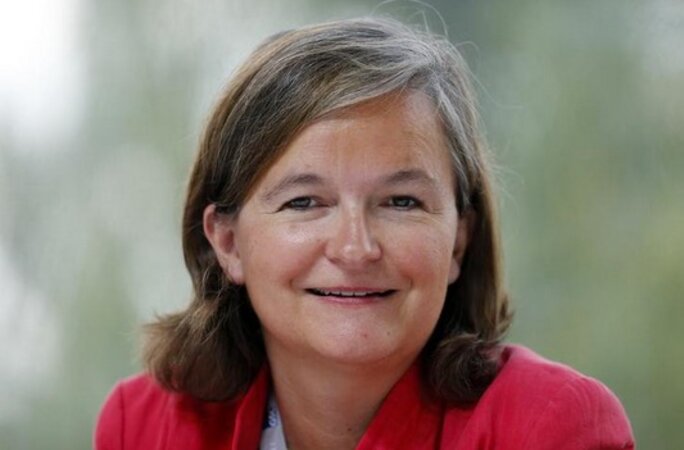
Nathalie Loiseau, minister in charge of European affairs at the Ministry of Europe and Foreign Affairs. Educated at the prestigious Sciences-Po university and INALCO (the Institut National des Langues et des Civilisations Orientales or the National Institute for Oriental Languages and Civilizations) Nathalie Loiseau, 53, replaces Marielle de Sarnez on the European beat after the latter was forced to leave government over her party's European parliamentary assistants controversy. Loiseau is well-known at the ministry having worked there for 26 years as a civil servant. She was spokesperson for the French Embassy in the United States in 2003 in the middle of the Iraq War crisis. She became head of human resources at the ministry before taking up the prestigious position of Director General for Administration there in 2011. In 2012 she left to become director of the École Nationale d'Administration (ENA) even though she never attended it herself.
Ministers from the Right
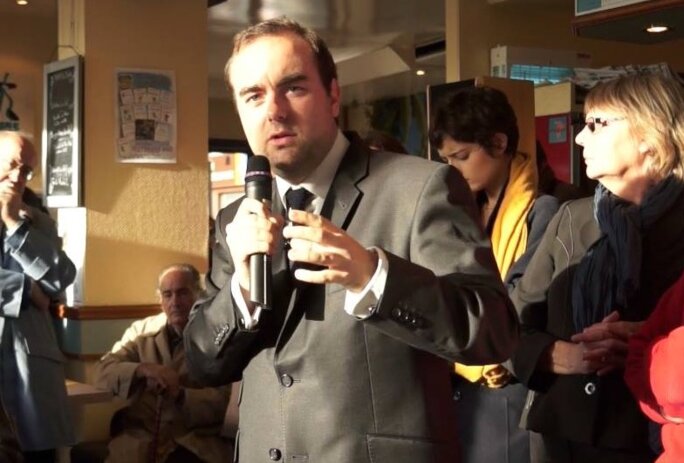
Enlargement : Illustration 4

Sébastien Lecornu, secretary of state with responsibility for environmental transition. It is not clear that the new environment minister, well-known environmentalist Nicolas Hulot, who voted for the radical left Jean-Luc Mélenchon in 2012, will share his anti-capitalist view of the environment with his new junior minister. The hugely-ambitious Lecornu was seen as a rising star on the Right. He was an advisor to Bruno Le Maire when the latter was European affairs minister under Nicolas Sarkozy and worked alongside him in the Normandy region, becoming mayor of Vernon in 2014 at the age of 28, then becoming president of the département or county of Eure in 2015. Lecornu, a lieutenant in the Gendarmerie reserve, is an unashamed right-winger who until now has been better known for his ability to greatly reduce the number of work credit claimants in his département than any great actions or even any speeches on the environment.
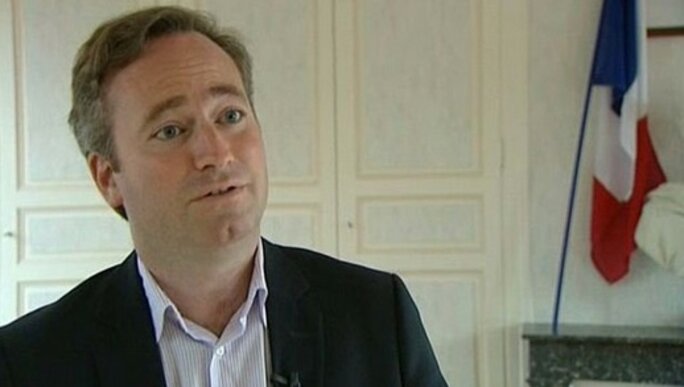
Jean-Baptiste Lemoyne, secretary of state at the Ministry of Europe and Foreign Affairs. Initially a supporter of Alain Juppé in the recent presidential election, this 39-year-old conservative senator from the Yonne département south-east of Paris who was elected for the first time in September 2014, switched his allegiance to Emmanuel Macron after the “fake jobs” row that hit conservative candidate François Fillon. In March he said of Fillon: “If he decides to continue, fine, but the court of history will deliver its own verdict.” The voters certainly delivered theirs. By the time Fillon had been knocked out in the first round Lemoyne was already backing the future president, whom he deluged with memos while working in the background to attract other Parliamentarians on the Right.
This graduate of the ESSEC Business School is something of a political survivor already in his career. He was a supporter of former minister Jean-François Copé when the latter was president of the conservative group of MPs at the National Assembly, and Lemoyne was himself deputy secretary general of the group. He was deputy to Jérôme Lavrilleux, who is now a European MP and facing trial for his alleged role in the so-called Bygmalion election funding affair. Lemoyne himself almost paid a heavy price over the Bygmalion scandal – which showed in passing just how dysfunctional the group of conservative UMP (now Les Républicains) MPs at the National Assembly were – when his party refused to endorse him as a candidate in the senate elections of September 2014. He stood as an independent and won anyway.
Only two MoDem ministers left
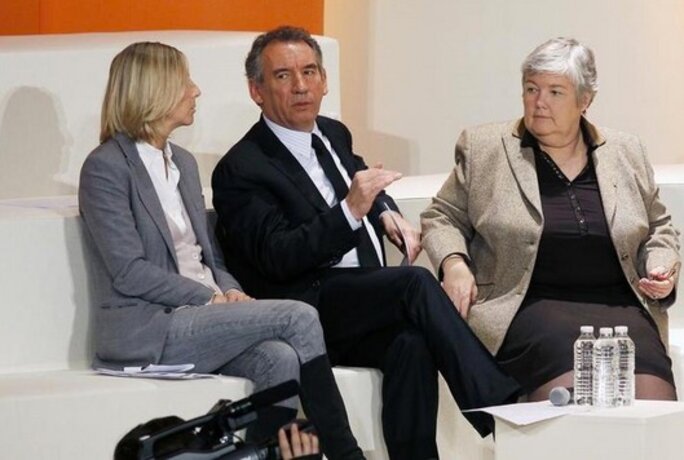
Jacqueline Gourault, junior interior minister. She backed Juppé in the 2016 primaries held by the conservative Les Républicains and ultimately sponsored Emmanuel Macron for the presidential election. She is a vice-president in Bayrou's MoDem party and until now has been Senate vice-president.
Jacqueline Gourault's background is typical for a French politician. She began her political life as mayor of a suburb of Blois in central France from 1989, a position she held until 2014. She was elected councillor for the Centre region from 1992 to 2001, served almost simultaneously as a councillor for the Loir-et-Cher département from 1998 to 2001 and has been a senator since then. Gourault sat on the Senate hunting and fishing study group, the study group on animal farming and its horse-rearing section. She was against same-sex marriage.
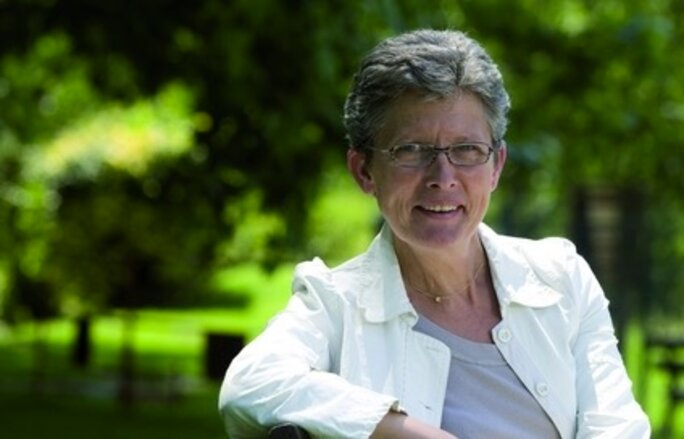
Geneviève Darrieussecq, secretary of state at the Defence Ministry This iron lady is a doctor by profession, and not someone to underestimate. Socialists in the Landes département in south-west France belatedly discovered this to their cost when she took the town of Mont-de-Marsan, which has a major air base, by a handful of votes in 2008. She was then re-elected five years later, winning outright in the first round of the election. Local socialist bigwig turned minister Alain Vidalies also discovered her political savviness when she beat him in the contest to be head of the Mont-de-Marsan conurbation authority in 2009.
Her rather austere, authoritarian image – Henri Emanuelli, a local Socialist Party rival, used to say she was without doubt more caustic than he – did not prevent Darrieussecq from becoming one of the few MoDem mayors of medium-sized towns elected following the party's big electoral breakthrough in the 2007 presidential election. She was Bayrou's advisor on health issues during the 2012 presidential election and remained close to him, backing Juppé in the Les Républicains' primaries last year and then transferring her loyalty to Macron two months before the vote.
The 'En Marchers'
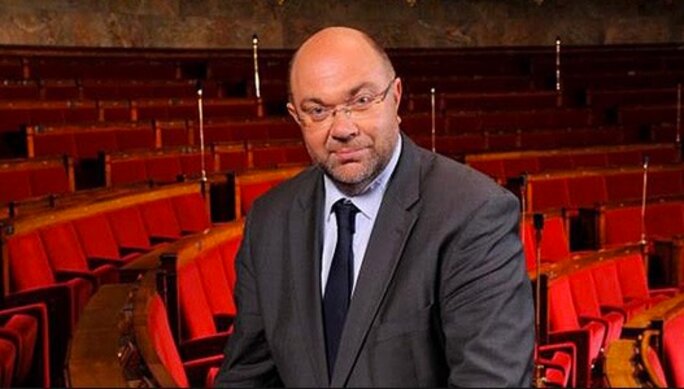
Stéphane Travert, Minister for Agriculture and Food. After the disappointment of being passed over to preside the LREM parliamentary group – the job had been promised to Ferrand – Travert was given the agriculture and food portfolio, a thorny task in France. At 47 he is a pure product of the Socialist Party, which he joined at the age of 19. He rose through its ranks to become its first secretary for the Manche département in northern France, chief of staff to the president of the Normandy region, then mayor of Caen and a regional councillor.
He wrenched a Manche constituency from the Right in 2012 when Hollande was on the ascendency but then broke with the former president, joining Benoît Hamon as part of a rebel group within the Socialist Party. He abstained on the European budget pact, voted against Hollande's early attempt to reform labour law in 2013 and abstained on former prime minister Manuel Valls's pension reforms and plans to cut 50 billion euros from the French state's budget. Despite that he was a co-rapporteur for the so-called Macron Law in 2015 and became one of Macron's supporters for the presidential campaign in parliament.

Enlargement : Illustration 9

Benjamin Griveaux, secretary of state to the economy minister. Left out of the first government, this Macron media sharpshooter was dying for a government role. At 39 he has now been appointed secretary of state working to economy minister Bruno Le Maire. He graduated from the prestigious Sciences-Po Paris and HEC, a top business school, and was a foot soldier at Dominique Strauss-Kahn's HQ when he stood in the Socialist Party's presidential primaries in 2012. There Griveaux met Cédric O, Stanislas Guérini and Ismaël Emelien, who were to become key figures in En Marche!
“I was just a technical guy with my head in cloud cuckoo land. We were the youngsters, no one took us seriously,” he confided to Mediapart last January. In 2008 he became the Socialist Party vice-president on Saône-et-Loire regional council in eastern France and a local councillor in Chalon-sur-Saône. He was charged with speech-writing for former health minister Marisol Touraine and was an advisor to the Jean-Jaurès Foundation, a think- tank close to the Socialist Party run by Gilles Finchelstein, a Strauss-Kahn acolyte. In 2014 he became communications and institutional relations director for Unibail, a commercial property company.
He soon joined Macron's movement and became close to him in a circle of former political allies of Strauss-Kahn's. He became a spokesperson and leading figure in En Marche! And he prised Paris's 5th constituency from the socialists in the second round of this month's parliamentary elections. Until his ministerial appointment, Griveaux envisaged becoming the president of En Marche! at its party conference in July.
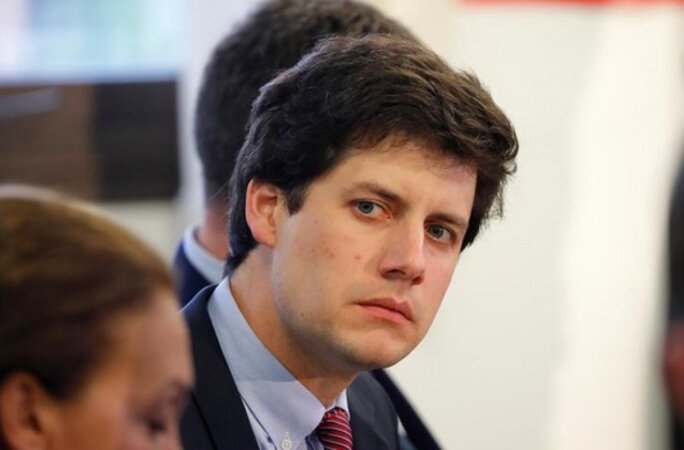
Julien Denormandie, secretary of state for the minister of territorial cohesion. He is one of the most loyal of Macron's inner circle and one of the pillars of En Marche! Aged 36, a water and forestry engineer by training, he worked with two of Hollande's ministers, Pierre Moscovici and Nicole Bricq, early in the presidency. In spring 2014, Macron had planned to launch a start-up with Denormandie when he quit as Hollande's deputy secretary general. But instead Macron became economy minister and Denormandie became his deputy chief of staff. Denormandie is a trusted ally, who headed En Marche!'s association for financing the presidential campaign and he is the movement's deputy general secretary. He will be deputy to Jacques Mézard, a former senator for the Radical Party, who has inherited the vast ministry Ferrand had to relinquish, covering housing, urban affairs and youth.
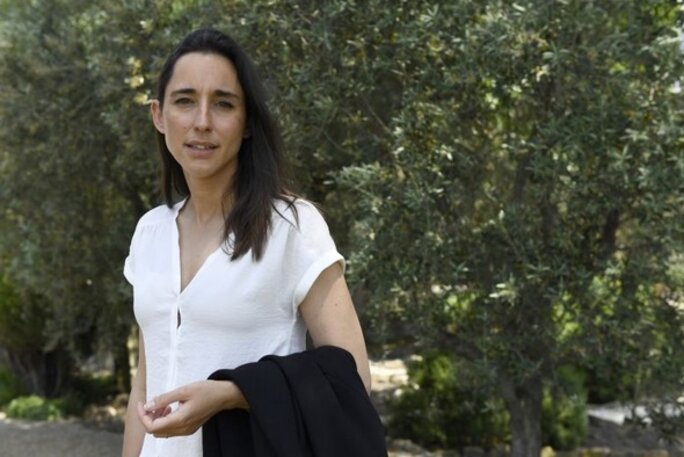
Brune Poirson, secretary of state in the Ministry of the Environment and Energy Transition. She is one of two secretaries of state appointed to assist Nicolas Hulot. Born in Washington DC but raised in the south of France, she studied at Sciences-Po Aix and became a parliamentary assistant for a Labour Party MP in London at the age of 34. She has just been elected in Carpentras in the South of France against the far-right Front National, where Marion-Maréchal Le Pen, niece of president Marine Le Pen, had stood down after her party's defeat in the presidential election. Poirson specialises in corporate sustainable development and ran a project on sanitation and privatisation of water facilities in Indian shanty towns for French multinational public utility company Véolia. According to Bastamag, however, this resulted in a threefold rise in the cost of water.
----------------------------------------------------------------------------
- The French version of this article can be found here.
English version by Michael Streeter and Sue Landau


